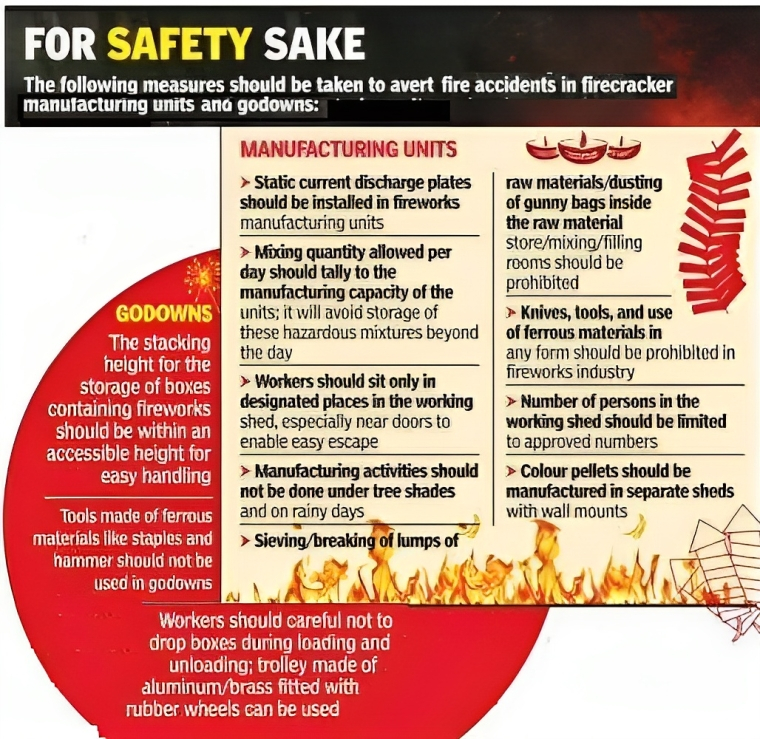7667766266
enquiry@shankarias.in
Recently, a blast in Tamil Nadu licensed firecracker unit located in Virudhunagar district claimed the lives of at least 12 workers.
|
Status of Firecracker Industry in Tamil Nadu |
|
|
National Green Tribunal Ruling in Virudhunagar Blast |
|

Quick facts
|
Petroleum and Explosive Safety Organisation (PESO) |
|
References